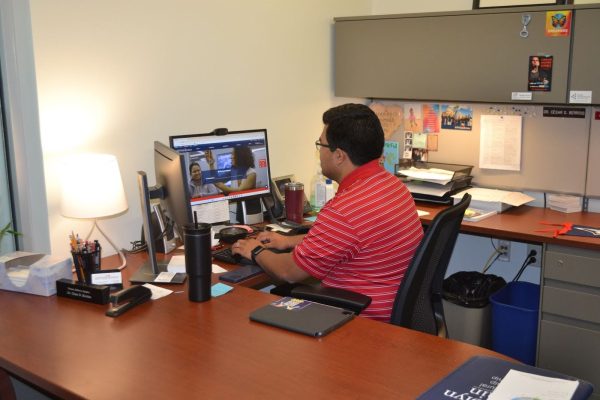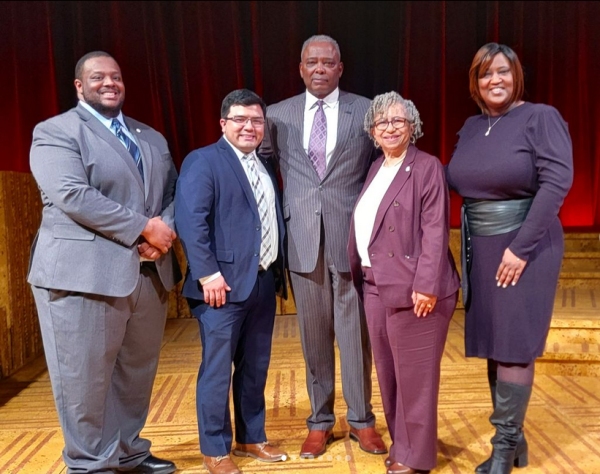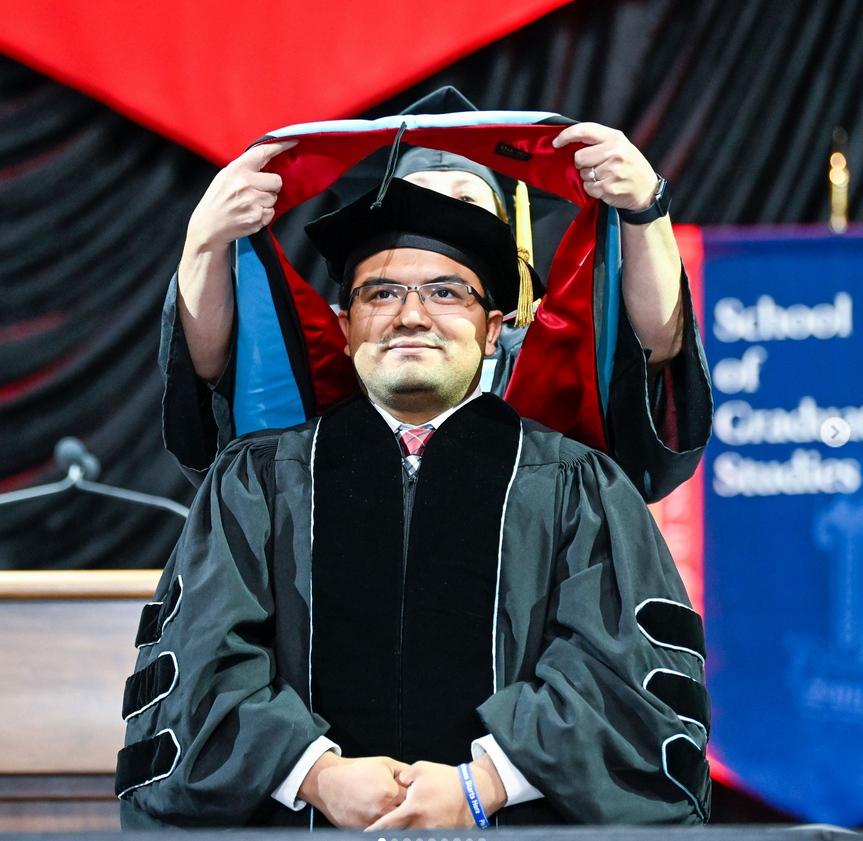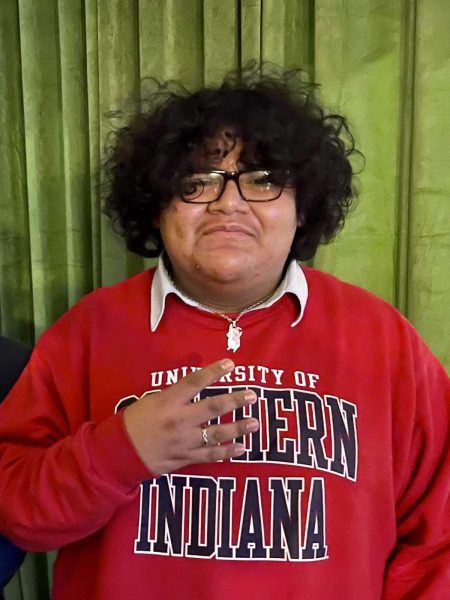César Berríos serves as the assistant dean of students and athletic diversity and inclusion designee. He moved from Nicaragua to the United States with his family at 6 years old and lived in San Francisco for two years before moving to Evansville in 1998. He is also an alumnus who has spent his academic and professional career at USI, from undergraduate to doctorate and associate director of the Multicultural Center to assistant dean of students.
A First-generation Immigrant Student’s Personal Connection and Difficulties
Berríos’ path had obstacles where he struggled to adapt to new environments, procedures and the flow of the education system in America.
He said he and his parents knew he would attend college, but they did not know how to help him achieve his academic goals.
“Although my parents knew that they wanted me to go to college, and I wanted to go to college, they didn’t really know how to support me and guide me,” Berríos said. “Not only was I first gen, but then there was also these language barriers and being new immigrants and all these different things.”
Berríos acknowledged that students are experiencing similar situations today.
“I continuously still see those same challenges and obstacles in other students here at USI,” he said. “And so the reason why I enjoy what I do is because I am able to work with these students. I can relate to them. I can sit here and say, ‘I understand, let me help you through that,’ or ‘Let me tell you what not to do’ because I made those mistakes.”
Commitment and Journey at USI
Berríos said he has a desire to continue working at USI. Before the move to DOSO, the MCC was his introduction to working in higher education. He enjoys working with and serving students in any way he can.
“This is my ninth year here at USI, and it’s been nothing but a great experience,” he said. “And so I love working in higher education. I love working with students. Every day is a different day, and so that really excites me.”

Berríos has worked with students in different capacities. He has worked on programs such as Pan Dulce and past Hispanic Heritage projects like Latin Rhythms and Sharing USI Student Stories. Additionally, he has worked with organizations such as the Hispanic Student Union and the Multicultural Leadership Scholarship.
“I don’t think we ever stop learning, especially when we work with students,” he said.
All things considered, Berríos said he sees himself staying at USI “for a very long time and potentially in retirement.”
A Change of Space — MCC to DOSO
Berríos switched from the Multicultural Center to the Dean of Students Office in July 2024.
He said the change was an opportunity for him to grow and continue to help students.
“I’m learning from every single person in this office, especially Dean Barry, who has been here at USI for a very long time, has a lot of knowledge and experience about just working within the Division of Student Affairs and just USI and higher education in general,” Berríos said. “So to be able to learn from her, I think it’s just a privilege. And the rest of the staff here, they’ve been here for a while as well, and have done amazing work with students, and so I want to continue to learn from them.”
Berríos said the MCC will always have a special place in his heart due to all the time he spent there.
“I’ve made an effort to go into the MCC a few times, say hello to the students, continue just to have those conversations with them,” he said. “So that they know that I’m still here to support them. They may not see me in the MCC all the time anymore, but I always let them know, ‘Hey, I’m right next door, easily.’”
Berríos said the main difference between the MCC and the DOSO is the amount of programs and events provided throughout the year. The MCC holds a few programs each month with a theme or awareness topic, whereas DOSO does more outreach.
“Every office has different purposes and different things, and it’s all at the end of the day to make sure to provide support for our students,” Berríos said. “So MCC provides support in one way, the Dean of Student Office provides support in other ways.”
Advice to the Student Body
One thing Berríos regrets from his time as a student at USI was not taking advantage of the resources that could have helped him further his academic journey.
“When I was an undergrad, I was like, ‘Well, if I have a question, I’ll just ask one of my friends,’” he said. “And all of that’s okay sometimes. Sometimes, your friends don’t provide the best advice, depending on the issue. And so I felt like I missed out on that support that I needed.”

During his first four years, Berríos did not utilize the MCC, even when they reached out to him. He visited the MCC once with a friend, but he only tagged along.
“I can actually go back as early as 2013, and there was some outreach from the MCC like the MCC still does right now, sending emails out and invitations,” he said. “But it was one that I looked over it. I didn’t even think anything of it and didn’t attend.”
At some point, Berríos wanted to go to law school but did not know what the process would be like. He asked his friend and parents but no one actually knew how to help him out. Even when he did his own online research, there was no clear answer.
“I took the LSAT, and I didn’t do well,” Berríos said. “I didn’t prepare well for it, and I was like, ‘Well, what do I do now?’ And I just let it go. I didn’t go to law school. So I didn’t reach out to anybody on campus. I didn’t talk to any of my professors about it. I didn’t do all these things that I should have done because they probably could have supported me and guided me, and I probably would have ended up going to law school if I had that support.”
He said it is easier to move forward when surrounded by resources and guidance.
“So for those first-gen students, I say, ‘Build that support system,’” he said. “Build those connections with people. Every single person that you come in contact with, try to get to know them, build that relationship with them, because you never know when you might need somebody to support you and guide you in your educational career, or just your professional career.”




